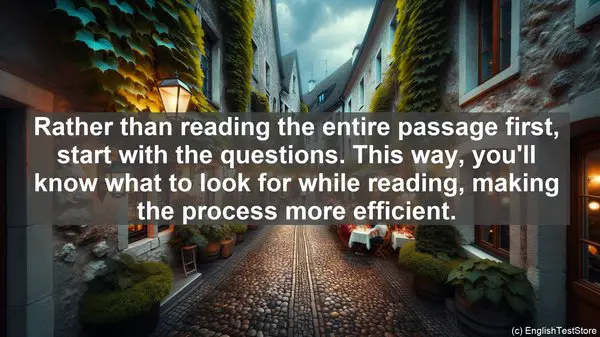Introduction: The IELTS Reading Challenge
As an IELTS teacher, I often hear students express their concerns about the Reading section’s time constraints. Today, I’ll be sharing 10 tried-and-tested techniques that will not only help you manage your time effectively but also improve your overall performance. Let’s dive in!
1. Skimming and Scanning: The Dynamic Duo
When time is of the essence, skimming and scanning are your go-to strategies. Skim through the passage to get a general idea, then scan for specific information. This way, you’ll save time and still answer accurately.
2. Tackle the Questions First
Rather than reading the entire passage first, start with the questions. This way, you’ll know what to look for while reading, making the process more efficient.
3. Utilize Headings and Subheadings
Headings and subheadings act as signposts, guiding you to the relevant information. They not only save time but also provide a clear structure to the passage.

4. Don’t Get Stuck: Time Allocation
Each question carries equal marks, so it’s crucial to allocate time accordingly. If you’re stuck on a particular question, move on and come back to it later. Don’t let one question consume all your time.
5. The Power of Keywords
Keywords are the key to finding answers quickly. They’re often repeated or paraphrased in the passage. Identifying these keywords will help you locate the relevant information faster.

6. Be Wary of ‘False’ Answers
The IELTS test creators are crafty. They often include ‘false’ answers that may seem correct at first glance. Read the options carefully, and don’t fall into their trap.
7. Practice with Time Limits
Regular practice is essential, but it’s equally important to simulate exam conditions. Set a timer and solve practice tests within the given time frame. This will help you get accustomed to the pressure.
8. Build Vocabulary Continuously
A strong vocabulary is a game-changer in the Reading section. Make it a habit to learn new words every day. This will not only improve your comprehension but also speed up your reading.
9. Learn from Mistakes
After solving a practice test, thoroughly analyze your mistakes. Understand why you went wrong and learn from it. This way, you’ll avoid repeating the same errors in the actual exam.
10. Stay Calm and Focused
Last but not least, maintain a calm and focused mindset during the exam. Panicking will only hamper your performance. Take deep breaths, stay positive, and tackle each question with confidence.
